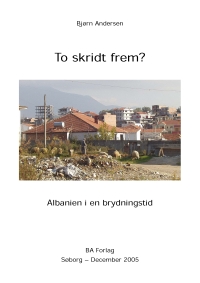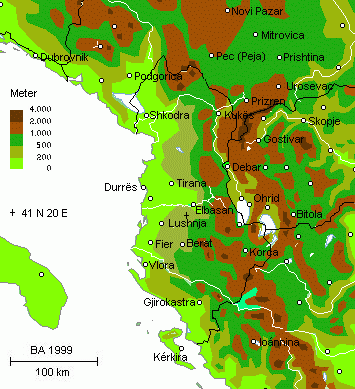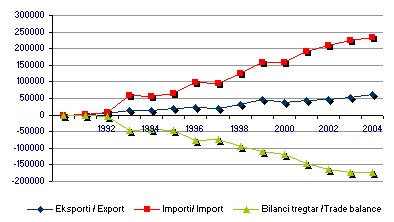Sidste Nyt fra Albanien, Kosóva og Makedonien
The Latest News from Albania, Kosóva and Macedonia
# 294 - 8' årgang - 10.03.2006
Version 1.0 •
PDF for printing •
Info om »Sidste Nyt«
Udgiver:
Bjørn Andersen
Publisher:
Bjoern Andersen

Præsident Moisiu har haft besøg af Laila Freivalds, Sverige
![]()












